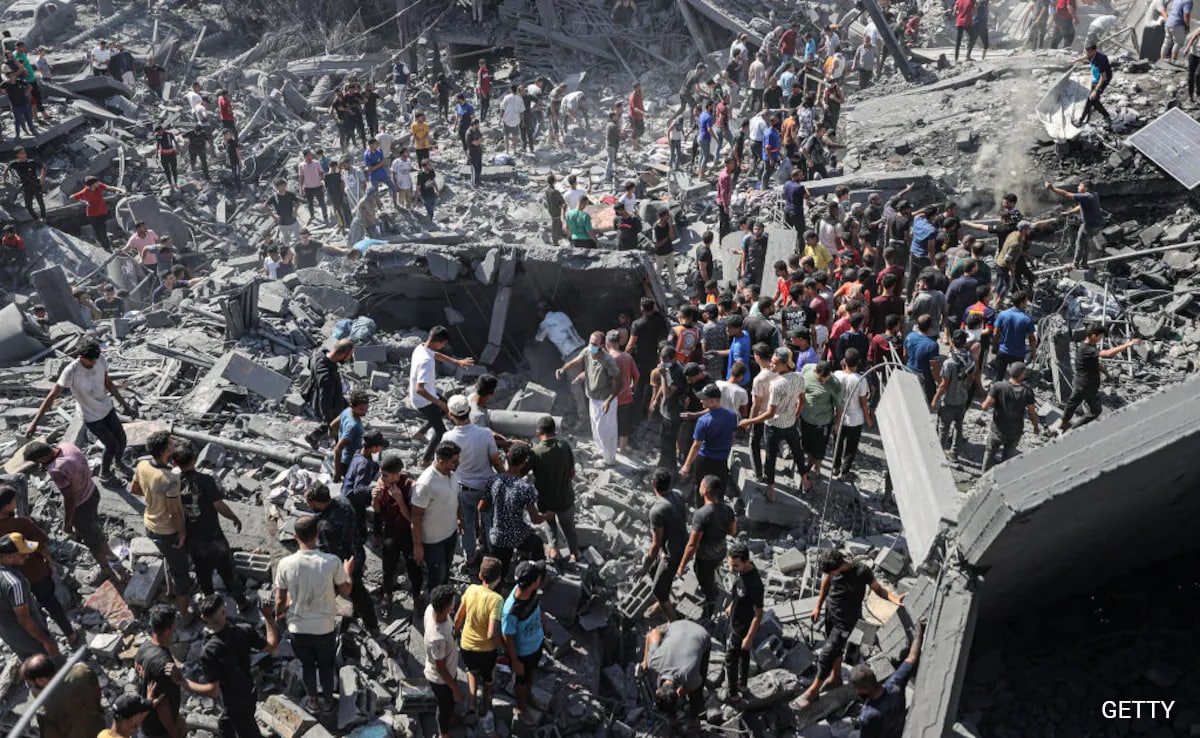
Iran warned that a ground invasion would have dire consequences for Israel (File).
Iran’s foreign minister warned that new fronts would open against the US if it keeps up unequivocal support for Israel, escalating a rhetorical back-and-forth that has stoked fears the Israeli conflict with Hamas will spread into a wider regional war.
Foreign Minister Hossein Amirabdollahian declined to detail the consequences Iran might have in store. He denied that Iran had instructed groups in Syria and Iraq to target US forces in recent days, and said it was Washington – not Tehran – that was fanning the violence in the days since Hamas killed some 1,400 people in an attack on Israel and Israeli forces responded with punishing airstrikes.
“The US is advising others to show self-restraint, but it has sided with Israel totally,” Amirabdollahian said in an interview with Bloomberg Television from Iran’s mission to the United Nations in New York. “If the United States continues what it has been doing so far, then new fronts will be opened up against the United States.”
“I would like to warn right here that the continuation of the situation, the continuation of the killing of the people in Gaza – women and children – will make the situation get out of control in the region,” he said. “The American side should decide – does it really want to escalate, intensify the war?”
Amirabdollahian spoke less than a day after the US said that it had conducted military strikes on two Syrian facilities linked to Iran’s Islamic Revolutionary Guard Corps that had been used for attacks against US troops in the region. US officials have said they don’t have evidence that Iran explicitly ordered those attacks but they hold Iran responsible because it supports groups that carried them out.
He said groups attacking US forces in Syria and Iraq are acting independently, and haven’t received direction from Tehran.
“They’re not receiving any orders from us, any instructions,” Amirabdollahian said. “The American side claims that these are linked to Iran. These groups decide for themselves independently.”
Attention has also focused on the possible outcome if Israel proceeds with a full ground invasion of the Gaza Strip in a bid to root out Hamas after an Oct. 7 raid by the group, which is designated a terrorist organization by the US and the European Union. Airstrikes of Gaza have already killed thousands of people, and on Friday the UN General Assembly passed a resolution calling for a ceasefire.
Western officials have worried that Iran-backed Hezbollah fighters in Lebanon would launch a barrage of attacks that could overwhelm Israeli air defenses. On Friday, US National Security Council spokesman John Kirby said the US has voiced its concerns with Israel about civilian casualties and collatoral damage.
Amirabdollahian warned that a ground invasion would have dire consequences for Israel. The Israel Defense Forces have stepped up attacks in recent days, and the IDF said in a statement Friday they were preparing for “future stages of the operation” with expanded operations on the ground.
“Opening of new fronts will be unavoidable and that will put Israel in a new situation that will make it regret its actions,” he said. “This has reached the point of explosion. Anything is possible and any front can be opened up.”
The foreign minister said he advised Hamas to release civilian prisoners being held by the Palestinian group, which has released four hostages so far. Negotiations for the dozens more people who remain in captivity appear to have stalled on Friday, with Israel cautioning people not to believe reports of progress.
“We have not dispatched new troops either to Syria or other parts of the region,” he said. “But we’re not just watching developments. In accordance to our national interests, the Islamic Republic of Iran will take action.”
(Except for the headline, this story has not been edited by NDTV staff and is published from a syndicated feed.)




